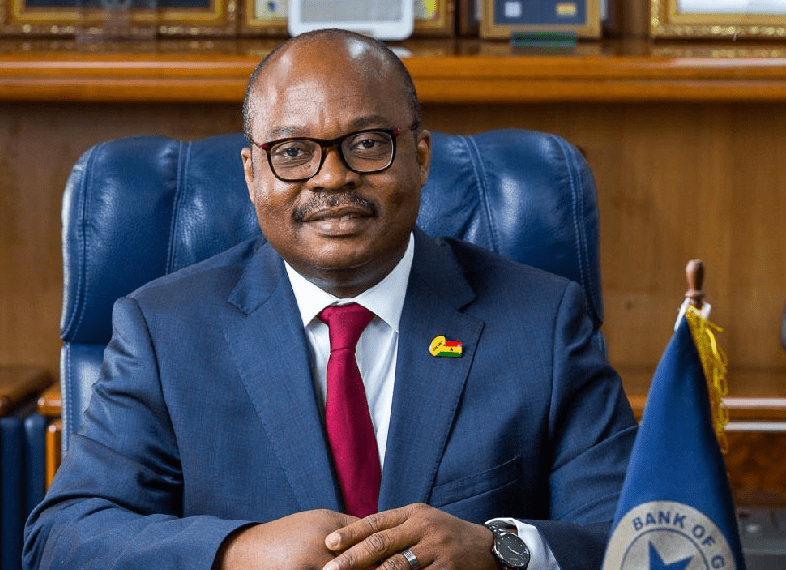
Meeting AfCFTA objective: African central banks to link payment systems
The Bank of Ghana (BoG) has teamed up with all the central banks in Africa to deliver anintegrated continental payment system to support trading within Africa.
The move is within the context of the larger African Continental Free Trade Area (AfCFTA) objective of promoting intra-African trade.
Advertisement
The platform, which is currently being developed, involves the linking of all the regional payment systems such as Pan African Payment and Settlement System (PAPSS) and SADC-RTGS, a payment system for countries in the Southern African Development Community (SADC) and that of ECOWAS.
When completed, the new payment system will promote efficiency in regional trade by facilitating the smooth flow of payments underpinning economic activities and fostering transparency and effectiveness in intra-African trade.
The Governor of the BoG, Dr Ernest Addison, who reiterated this at the closing of the Ghana Academy of Arts and Sciences (GAAS) Forum 2022 in Accra last Wednesday evening, stated that given the right policies, Africa’s collective efforts at integrating existing national payment systems could enable firms on the continent to innovate, invest and create job opportunities.
“Together with digitalisation, an integrated payment system will help Africa foster convergence of institutional framework and create a more regional financing ecosystem.
“Collectively, we are working to deliver an integrated and interoperable continental payment system by linking all the regional payments leveraging the PAPSS connectivity to enhance the power of digital payment for value creation,” he said.
The forum was on the theme: “African Continental Free Trade Area: Challenges and Prospects.”
It was organised by the Ghana Academy of Arts and Sciences (GAAS) in collaboration with Universal Merchant Bank (UMB).
The role of payment
Speaking on the topic, “Boosting the AfCFTA: The Role of Payment and Settlement Systems,” the governor said an efficient and resilient
payment infrastructure was fundamental to the promotion of intra-African trade.
Dr Addison said a supportive payment system could be used as a strategic tool to enhance and facilitate regional integration, increase competitiveness and improve Africa’s position in the international financial system.
He said a strong and well-regulated African financial infrastructure could deepen the benefit of intra-regional trade, eliminate the
use of fair currencies for settlement, improve liquidity management and reduce transaction cost.
The governor said beyond improved speed and lowering of cost for transactions, an integrated payment settlement system would support the AfCFTA by mitigating risk associated with intra-African trade payments and facilitate efficient functioning of the African financial market.
He said to boost intra-African trade, there was the need to invest in a robust payment and settlement system infrastructure.
Dr Addison noted that over the last two decades the country’s payment systems had been transformed and underpinned by innovation, competition and digitalisation.
The journey started in 2022 with major changes in the payment ecosystem, he said.
Dr Addison added that BoG’s strategy for payment systems development over the years was to foster competition among industry
players with the view to drive innovation, competition and provide consumers with choice at a lower cost for transaction.
“An example is the bank’s step to bring in the financial technology firms under its regulatory purview which has led to the expansion of digital services and help bring the unbanked into the formal f financial system.
“Notwithstanding the national payment system, transactions between Ghana and other African countries may have to go to a third country which is not likely to be based on the continent,” he added.
The Chief Executive Officer (CEO) of UMB, Nana Dwemoh Benneh, said the country’s economy was on the cusp of expansion that required new ways of thinking in finance and banking for the transformation anticipated.
He said UMB remained one of the key financial players in the country and under the leadership of the BoG, the banking industry was poised to participate in the anticipated transformation that AfCFTA would bring.
“The deliberations over the last few days have confirmed that this new way of how Africa trades will change a lot for us all.
“It seems the fundamental question is this: How will banks like ours provide the requisite service to enable this boom to happen in a way that will enhance the fortunes of our most important stakeholders,” Mr Benneh added.
Remove obstacles
An Associate Professor of Economics at the University of Ghana, Professor Festus Ebo Turkson, said for AfCFTA to be able to improve
intra-African trade, steps needed to be put in place to remove various obstacles that hindered trading.
He stated that the lack of appropriate infrastructure was one such critical obstacle that needed to be addressed.
“Africa’s rail network is limited. While most intra-African trade freight goes by road, most roads are in a poor condition, leading to high transportation and distribution costs and invariably large trade costs.
“Logistics quality is generally poor. It is to be noted that poor infrastructure typically increases trade cost, economic distance and
business uncertainty, as well as compromises product quality and export competitiveness,” he said..




